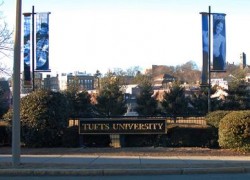
Following up on President Barack Obama’s call in his State of the Union address for improvement in American higher education, the White House last week unveiled a draft “College Scorecard” to provide potential college students with vital statistics about prospective colleges.
The scoring system, which President Obama first announced in a speech at the University of Michigan on Jan. 27, would list such general facts as the institution’s tuition and graduation rates, as well as such statistics as the average student loan debt and earnings potential of graduates. President Obama explained the necessity of an organized way for students and parents to evaluate the value of institutions of higher learning.
“From now on, parents and students deserve to know how a college is doing — how affordable is it, how well are its students doing? We want you to know how well a car stacks up before you buy it. You should know how well a college stacks up,” he said.
“We want to push more information… so you as consumers of higher education understand what it is that you’re getting,” he added.
By providing a thorough display of each school’s tuition, job placement and retention rates, President Obama explained that applicants would be able to be make a more informed decision about where to attend, thereby heightening their chances for a successful, affordable college experience.
The plan follows the president’s Jan. 24 State of the Union address, in which he cited the link between a strong education system and a revived American economy.
“Higher education is not a luxury,” Obama said in the address. “It’s an economic imperative that every family in America should be able to afford.”
Members of the Tufts U. administration recognized the importance of making such statistics readily available to prospective students.
“All of the areas that are included in President Obama’s proposal are publicly−available data points,” Tufts Dean of Undergraduate Admissions Lee Coffin said. “Each is certainly worthy of consideration by prospective students.”
Dawn Terkla, Tufts associate provost of institutional research and evaluation, felt similarly.
“I think everyone should have as much information as possible when applying to colleges,” she said. “There’s a school for everyone — a place where everyone is going to be successful — but not everyone is going to be successful at any one school. When people have more information, they can make as educated a decision as possible about where to enroll.”
Terkla added that there are already means of accessing the information that the White House’s proposed scorecard would provide, including the National Center for Education Statistics’ “College Navigator” tool.
The White House’s project could potentially make this information more organized and reader−friendly, she said. Terkla added that she is confident that Tufts will receive high marks in every category.
Terkla also hoped that college applicants would base their decisions on aspects of the school other than just the statistics that the “College Scorecard” would provide.
“It’s hard to say how people will use the information from this scorecard,” she said. “I would hate for people to simply rely on online data, without coming to visit the campus and learning more about the student body.”
Two Tufts freshman students, Nader Salass and Daniel Pasternak, insisted that their final decision of where to attend college was based on more than statistics. They still acknowledged the influence that the type of information a “College Scorecard” would provide had on them during their college searches.
“As a college applicant, I didn’t look directly at those statistics,” Pasternak said. “However, they can definitely back the school’s reputation a lot. It’s helpful to at least be aware of how a school is performing in all of these areas.”
Salass agreed that such statistics are useful, if not the only basis of his decision.
“When I was looking at schools, I didn’t necessarily look straight at the statistics,” he said. “However, the amount of students who go on to get good jobs is sort of indicative of the quality of the school as a whole. It’s also important to see that all of the students at the school find jobs later on, not just those majoring in economics, for instance.”
The White House is currently soliciting feedback on the proposed scorecard through its website at whitehouse.gov.
